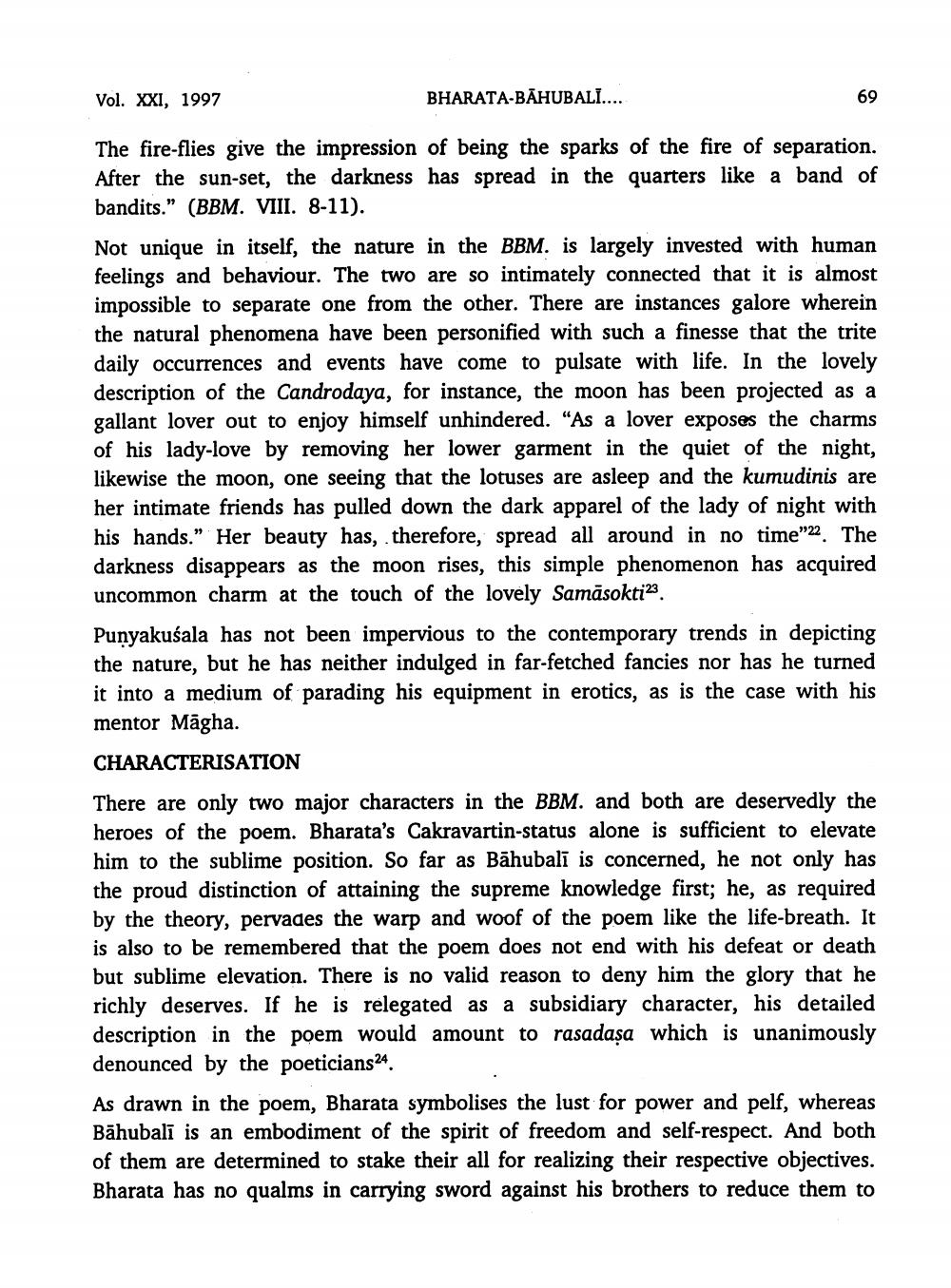________________
Vol. XXI, 1997
BHARATA-BĀHUBALI....
69
The fire-flies give the impression of being the sparks of the fire of separation. After the sun-set, the darkness has spread in the quarters like a band of bandits." (BBM. VIII. 8-11).
Not unique in itself, the nature in the BBM. is largely invested with human feelings and behaviour. The two are so intimately connected that it is almost impossible to separate one from the other. There are instances galore wherein the natural phenomena have been personified with such a finesse that the trite daily occurrences and events have come to pulsate with life. In the lovely description of the Candrodaya, for instance, the moon has been projected as a gallant lover out to enjoy himself unhindered. “As a lover exposes the charms of his lady-love by removing her lower garment in the quiet of the night, likewise the moon, one seeing that the lotuses are asleep and the kumudinis are her intimate friends has pulled down the dark apparel of the lady of night with his hands." Her beauty has, therefore, spread all around in no time”22. The darkness disappears as the moon rises, this simple phenomenon has acquired uncommon charm at the touch of the lovely Samāsokti23.
Punyakušala has not been impervious to the contemporary trends in depicting the nature, but he has neither indulged in far-fetched fancies nor has he turned it into a medium of parading his equipment in erotics, as is the case with his mentor Māgha. CHARACTERISATION There are only two major characters in the BBM. and both are deservedly the heroes of the poem. Bharata's Cakravartin-status alone is sufficient to elevate him to the sublime position. So far as Bāhubalī is concerned, he not only has the proud distinction of attaining the supreme knowledge first; he, as required by the theory, pervades the warp and woof of the poem like the life-breath. It is also to be remembered that the poem does not end with his defeat or death but sublime elevation. There is no valid reason to deny him the glory that he richly deserves. If he is relegated as a subsidiary character, his detailed description in the poem would amount to rasadașa which is unanimously denounced by the poeticians24. As drawn in the poem, Bharata symbolises the lust for power and pelf, whereas Bāhubali is an embodiment of the spirit of freedom and self-respect. of them are determined to stake their all for realizing their respective objectives. Bharata has no qualms in carrying sword against his brothers to reduce them to




